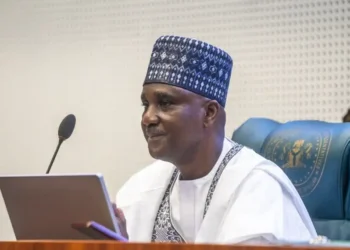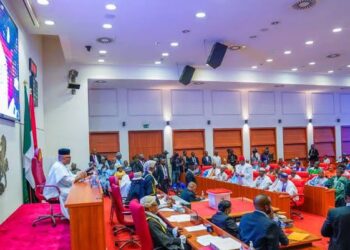The Minister of Industry, Trade and Investment, Otunba Adeniyi Adebayo stated that the Federal Government seeks to increase development into Nigeria’s Special Economic Zones (SEZ) with the aid of Foreign Direct Investments.
The Minister disclosed this at the Nigerian in Diaspora Commission (NiDCOM) virtual lecture which held on Friday with the Theme: “Post-COVID-19 Economic Resurgence: Targeting Diaspora Investment”
READ: Most Nigerian banks may fail stress tests if economic downturn persists
What you should know
Nairametrics reported in September that the Minister stated that Nigeria is actively working to attract more foreign direct investments into key industries to meet the demands of the African Continental Free Trade Area (AfCFTA).
Mr. Adebayo urged stakeholders in the Diaspora at Friday’s event to take advantage of opportunities to invest in Nigerian Special Economic Zones to boost economic productivity.
READ: Nigeria needs to spend $3 trillion in over 30 years to bridge infrastructural gap – Moody’s Report
He added that the Special Economic Zones will be located in Lekki, Enyimba, Funtua, Ibom, Calabar, Bauchi, Kwara, Kano, Benue, Gombe and Ekiti. With investments in sectors including cotton, textiles and garment industry, and backward integration programme to expand local production of sugar, cassava and oil palm processing.
The Minister added that the SEZ’s have the potential to boost local car assembly production to 480,000 per annum.
READ: AfDB rewards winners of AgriPitch competition with $120,000
He revealed that Nigeria’s trade ministry has plans to establish one agro-processing zone in all regions.
“This is a major lever for promoting wealth creation for a majority of our workforce who are farmers.
“This ministry has accelerated plans to establish at least one agro-processing zone in each senatorial district in Nigeria,” he said.
READ: Nigeria’s inflation rate jumps to 12.82%, highest in 27 months
He also added that the pandemic affected foreign investor confidence in Nigeria as supply chains of goods and services were heavily disrupted in Nigeria.
“Commercial activities and movement of goods and services within the country were severely constrained; culminating in job losses and downsizing by various businesses; which may affect their Investment and encourage capital flight if not addressed critically.
READ: Reps to support total reforms in aviation industry through legislation – Speaker
“Also, this impact has been significantly felt across various sectors such as the agribusiness, healthcare, manufacturing, entertainment, tourism and hospitality, transportation and retail sectors amongst others.
“Of course, individuals, households, Micro, Small and Medium Enterprises (MSMEs) and large corporations have not been spared from the effect of the crisis,” he said.















.gif)






